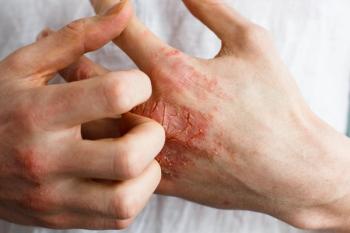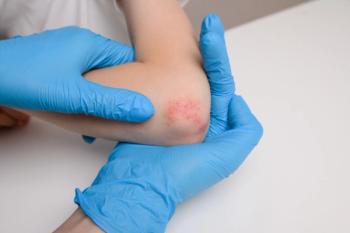
FDA Accepts Supplemental BLA For Nivolumab For Melanoma
The PDFUA date for the drug is October 13, 2023.
The FDA has accepted the supplemental Biologics License Application (sBLA) for nivolumab (Opdivo) as adjuvant monotherapy for patients with completely resected stage IIB or IIC melanoma, according to a Bristol Myers Squibb press release.1 The PDUFA date for this sBLA is October 13, 2023.
The sBLA submission was based on safety and efficacy results of the pivotal CheckMate-76K clinical trial. Results from this phase 3, randomized, double-blind clinical trial were previously shared in October 2022 in both a company press release2 and as late-breaking data during a plenary session at the Society for Melanoma Research annual meeting.
Results of the CheckMate-76K trial showed a “statistically significant and clinically meaningful” benefit in recurrence-free survival vs placebo in this patient population. At the time of the pre-specified interim analysis, CheckMate-76K met the primary endpoint (recurrence-free survival) and reduced the risk of recurrence or death by 58% vs placebo (hazard ratio [HR], 0.42; 95% CI, 0.30-0.59). Twelve-month recurrence-free survival rates were also higher vs placebo (89% vs 79%; 95% CI, 86-92 and 74-84, respectively).
In patients with stage IIB melanoma, 12-month recurrence-free survival was 93% with adjuvant nivolumab therapy, and 84% in stage IIC melanoma (vs 84% and 72% in the placebo group).
The safety profile of nivolumab was consistent with previous studies; no new safety signals were observed. Grade 3 or 4 treatment-related adverse events were noted in 10% and 2% of the nivolumab and placebo group, respectively, while rates of treatment-related adverse event–related discontinuation were 15% and 3% in these same groups.
“Within 5 years after surgery, one-third of stage IIB and one-half of IIC patients see their cancer return. Helping reduce that risk remains a need to be addressed when it comes to melanoma,” said Georgina Long, MD, PhD, co-medical director of the Melanoma Institute Australia and the char of melanoma medical oncology and translational research at Melanoma Institute Australia, the University of Sydeny, and Royal North Shore and Mater Hospitals. “The data from CheckMate-76K show that treating with nivolumab in the adjuvant setting for stage IIB and IIC melanoma patients has yielded significant recurrence-free survival benefits and could be an important treatment option for this patient population.”2
“Melanoma can be a devastating diagnosis, and patients with stage IIB and IIC melanoma tend to be at high risk of disease recurrence,” said Gina Fusaro, PhD, vice president, development program lead at Bristol Myers Squibb. “The data from the CheckMate-76K trial demonstrate the benefit that [nivolumab] can have for patients with this earlier stage of cancer.”1
The European Medicines Agency has also validated the Type II Variation Marketing Authorization Application for nivolumab, where the drug will undergo the agency’s centralized review process.
References
1. US Food and Drug Administration accepts Bristol Myers Squibb’s supplemental biologics license application and European medicines agency validates application for Opdivo (nivolumab). News release. Bristol Myers Squibb. February 28, 2023. Accessed February 28, 2023.
2. Bristol Myers Squibb presents data from CheckMate-76K showing Opdivo (nivolumab) reduced the risk of recurrence or death by 58% versus placebo in patients with completely resected stage IIB or IIC melanoma. News release. Bristol Myers Squibb. October 19, 2022. Accessed February 28, 2023.
Newsletter
Pharmacy practice is always changing. Stay ahead of the curve with the Drug Topics newsletter and get the latest drug information, industry trends, and patient care tips.























